Kinase and Phosphatase Compound Testing Services
Flexible and customizable compound testing services with quick turnaround time.
AssayQuant's compound testing services provide the flexibility to meet your needs, including a variety of compound potency measurements and the option for preincubations, comparison of ATP at the Km app or 1 mM, and analysis with recombinant enzyme or crude cell lysates.
We offer rapid turnaround at seven (7) business days for most determinations, including potency, mechanism of action or residence time and 14 business days for large panel kinome profiling.
Introducing profiling services for phosphatases & lipid (DGK) kinases!
Please contact our team to learn more.
PhosphoSens enables complex determinations to provide critical understanding of enzyme inhibitor properties to improve drug performance, including:
- Kinome Profiling: 1 or more concentrations & up to 377 Protein Kinase targets (410 assays w/mutants; new assays added continuously).
- IC50 or Ki: 12 pts, BSA or DTT; low or high ATP, protein complexes & crude lysates
- kinact/KI: 24 pts for time-dependent inhibition with covalent compounds
- Residence Time: Uses Jump Dilution method with a range of detection from 30 seconds to 2 days
- Mechanism of Action (MOA): ATP & peptide or lipid substrates
- EC50: Assess potency of compounds for target activation
Examples of Enzyme Inhibitor Assessments Offered as Custom Service
A. IC50 Determination for Tarceva (reversible) with EGFR and EGFR T790M/L858R
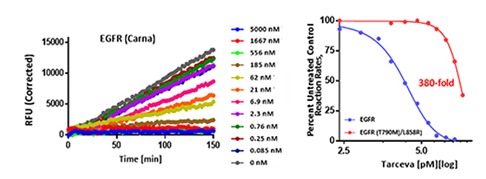
Determination of reaction rates at each inhibitor concentration showing 380-fold decrease in potency with the EGFR T790M/L858R mutant resulting in drug resistance.
B. Pre-Incubation Time vs. Inhibitor Potency for Covalent Compounds with EGFR T790M/L858R
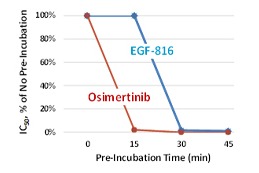
Osimertinib (AZ) showing faster kinetics of inactivation than EGF-816 (Novartis).
C. Kobs vs. [1], Kinact/KI for Covalent Inhibitors
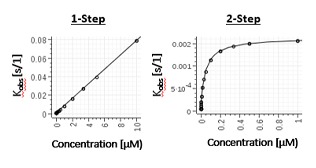
1-step vs. 2-step covalent inhibitor mechanism.
D. IC50 vs kinact/KI Plots
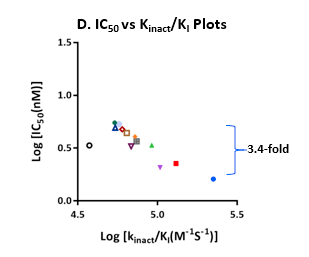
13 inhibitors with IC50 values in a 3.4-fold range (1.6 - 5.5nM) are differentiated with kinact/KI.
E. Residence Time
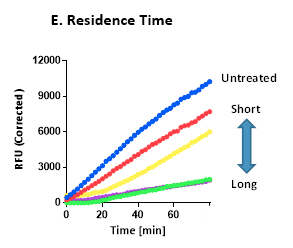
Jump-dilution method for determination of Residence Time (Tau) for receptor or soluble tyrosine kinases with values ranging from 8.3 min (0/14h) to 1,149 (19.2 h). Due to the high precision of the platform, can detect values from 30 sec to 2 days.
F. KinSight Kinome Profiling With a Panel of 400+ Wild-Type Kinases Providing Kinetic Insights into Selectivity and Mechanism of Action
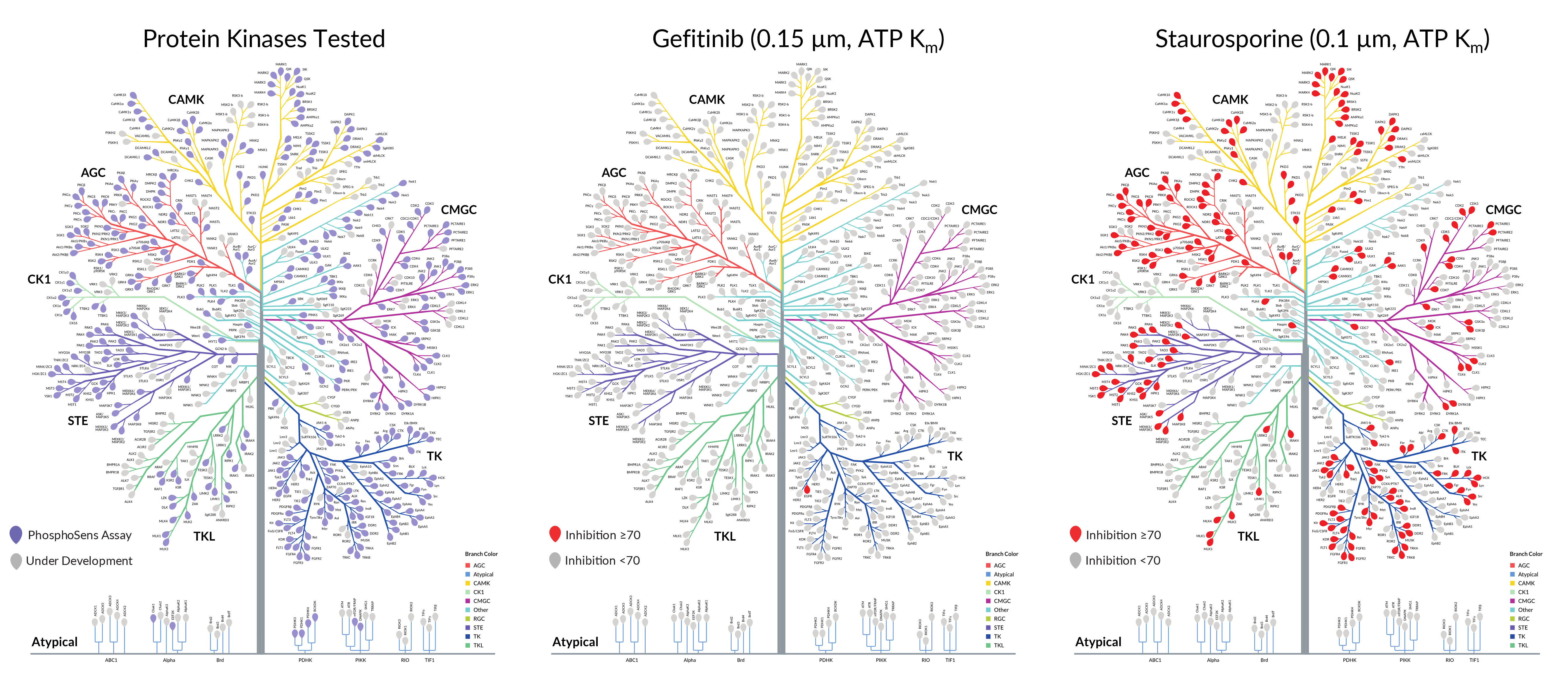
Explore Our Other KinSight™ Services
Quantitative Kinome Profiling Services
Time-Dependent Inhibition Services
Custom Assay Development Services
Stay Informed
Want to hear the latest about our technology? Be among the first to learn about our latest products and services.